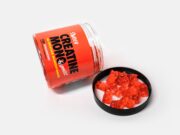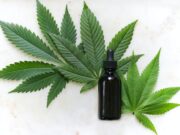With the increasing popularity of Ashwagandha, the supplement aisle now offers an overwhelming array of choices—capsules, powders, tinctures, teas, and gummies, all promising various health benefits. For those new to herbal supplementation or simply looking to optimize their routine, the question remains: Which Ashwagandha format is right for you?
This article breaks down the most common Ashwagandha delivery forms, explains what to look for on labels, and highlights how to make an informed choice based on your health goals and lifestyle.
Why Format Matters
Ashwagandha works through consistent, daily use—its benefits build gradually over time. The format you choose influences absorption, dosage precision, taste, convenience, and ultimately whether or not you stay consistent.
There is no “best” form for everyone, but there is likely a best form for you.
Capsules: The Gold Standard for Convenience
Capsules remain the most common and widely used format. They offer pre-measured doses, often in the clinically studied 300–600 mg range.
Pros:
-
Easy to dose
-
Tasteless and travel-friendly
-
Available in standardized extracts (e.g., KSM-66, Sensoril)
Consider if: You want a straightforward, no-flavor option with clinical reliability.
Powders: Ideal for Customization
Ashwagandha root powder is often marketed as a more “natural” or traditional form. Powders are versatile and can be added to smoothies, yogurt, or teas.
Pros:
-
Can adjust dosage freely
-
Often more affordable per serving
-
Suitable for Ayurvedic recipes
Cons:
-
Bitter taste
-
Less convenient
-
Requires precise measuring
Consider if: You follow a food-based wellness routine and don’t mind the earthy flavor.
Tinctures and Liquid Extracts: Fast-Acting but Niche
Liquid Ashwagandha extracts (often alcohol-based) are absorbed more quickly than powders or capsules. They are typically taken under the tongue or mixed with a small amount of water.
Pros:
-
Quick absorption
-
Easy to modify dose
-
Good for people with difficulty swallowing pills
Cons:
-
Strong taste
-
Alcohol content may be unsuitable for some users
Consider if: You need rapid onset (e.g., stress spikes) and are comfortable with liquid delivery.
Teas and Infusions: Traditional but Mild
Some wellness brands offer Ashwagandha blended into teas, often with other calming herbs like chamomile or licorice root. This option aligns with traditional Ayurvedic preparation but may lack the potency of standardized extracts.
Pros:
-
Gentle, soothing experience
-
Combines well with bedtime routines
Cons:
-
Typically lower in dosage
-
Effects are subtle unless consumed frequently
Consider if: You’re looking for a ritual-based form with mild effects.
Gummies: Palatable and Practical
Ashwagandha gummies offer a unique blend of convenience and taste. Often made with KSM-66 extract, they are ideal for users who dislike capsules or powders.
Pros:
-
Pre-measured dose
-
Tasty and easy to take
-
Encourages consistent use
Cons:
-
May contain added sugars or flavorings
-
Usually lower in concentration per piece
Ashwagandha gummies from Tribe Organics combine the clinically studied KSM-66 extract with a convenient chewable format—making them a strong choice for users prioritizing ease and reliability. Organic supplements done right.
Consider if: You want a stress-free, enjoyable way to maintain daily Ashwagandha intake.
What to Look for on the Label
Regardless of format, quality should guide your choice. Look for these key indicators:
-
Standardized extract: KSM-66 (root-only, full-spectrum) or Sensoril (root and leaf, higher withanolides)
-
Withanolide content: 5 percent is typical for KSM-66
-
Third-party testing: Verifies purity and safety
-
Clear dosage: Ideally 300–600 mg per serving
-
Free from fillers or contaminants
Avoid products that don’t list the extract type or fail to show dosage amounts. Transparency is a mark of a reputable brand.
Matching Product to Purpose
-
For stress/anxiety: Gummies or capsules with KSM-66, 300–600 mg per day
-
For athletic recovery: Capsule or powder, taken post-workout
-
For thyroid or hormonal support: Capsule form, consistently at the same time daily
-
For general wellness: Any trusted form that fits your lifestyle and encourages long-term use
Final Thoughts
Choosing the right Ashwagandha supplement comes down to matching the form to your lifestyle, taste preference, and intended benefit. For most users, capsules offer clinical precision, while powders allow for customization. But gummies—such as those from Tribe Organics—deliver a well-rounded solution that’s effective, enjoyable, and easy to stick with.
As with any supplement, quality and consistency matter more than the format itself. By prioritizing reliable dosing and choosing a reputable source, Ashwagandha can become a valuable part of your long-term wellness practice.




















